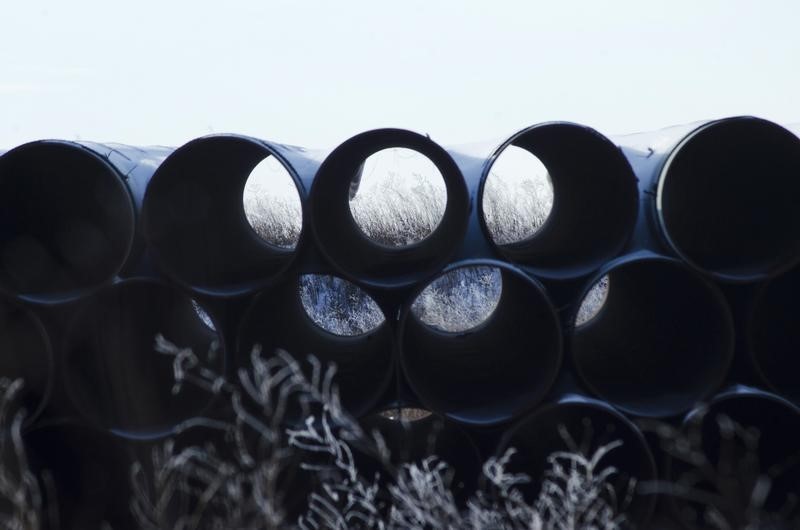By Timothy Gardner and David Lawder
WASHINGTON (Reuters) - Senate Republicans on Thursday advanced a bill to approve construction of the Keystone XL oil pipeline, their top priority in a new campaign to push back President Barack Obama's policies now that they fully control Congress.
The Republican-led Senate Energy Committee approved the measure on a 13-9 vote, sending it to the full Senate for consideration next week. The House of Representatives has scheduled a vote to approve the pipeline on Friday.
Obama has threatened to veto the measure, setting up an early battle over the TransCanada Corp project that would link Canadian oil sands to refineries in Texas.
"Keystone is the largest shovel-ready infrastructure project in the country," said new Majority Leader Mitch McConnell. "So we're going to send it to him (Obama) and we hope he'll sign it."
The project attracted one Democratic vote on the panel, from West Virginia Senator Joe Manchin, who co-sponsored Keystone legislation with North Dakota Republican John Hoeven.
"By golly we need this oil. And I'd rather buy it from Canada than Venezuela," Manchin said during a hearing before the panel vote.
Hoeven says 63 senators support the measure, four less than the 67 needed to override a veto. Backers of the project hope the full Senate will debate amendments that would create more Democratic support.
Democrats opposed to the pipeline have said they plan to introduce amendments in the full Senate requiring the pipeline to be built with U.S. steel and to prevent the oil from ever being exported.
The Republican-led House of Representatives already has voted nine times to approve Keystone.
If Obama vetoes the bill, Republican lawmakers will attempt to attach Keystone language to a must-pass spending bill or other legislation that Obama would find hard to reject.
While Keystone remains an indicator of Obama's energy policy, and a galvanizing issue for environmentalists, its practical near-term importance for the North American oil industry has slipped.
Even before the dive in oil prices put Canada's future oil sands growth in question, other major pipelines and a growing oil-by-rail business, emerged to meet demand for shipping rising output to world markets.

The State Department has delayed deciding whether the project is in the country's interest pending a court ruling in Nebraska over Keystone's route. The court could rule as soon as Friday or as late as the summer. If it upholds a lower court, TransCanada could face many more months of delays.